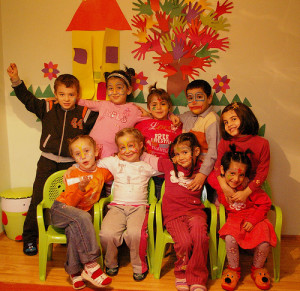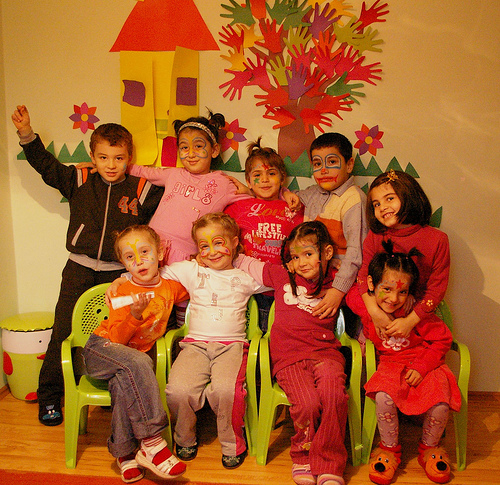One of public television’s (PBS) excellent programs for preschool children is Daniel Tiger’s Neighborhood. This show replaced Mister Rogers’ Neighborhood in 2012. Unlike the original program, which had real people and children, Daniel Tiger’s Neighborhood is in animated cartoon format. According to Wikipedia, Rogers’ program The Neighborhood of Make-Believe, which had puppets as characters, influenced Daniel Tiger’s Neighborhood. Daniel is a young tiger who attends school and has many friends, including a young cat and a young owl. Some brief sequences of real children involved in interesting activities like feeding zoo animals and visiting museums also appear.
Daniel Tiger’s Neighborhood teaches kids how to handle and understand emotions like sadness and jealousy. By having Daniel feel sad when his class’s adopted duck must return to the farm, the program tells viewers, “It’s OK to feel sad,” and reassures them that they will gradually feel better. The creators of Daniel Tiger’s Neighborhood embody this message in a repeated song that youngsters can quickly memorize. Similarly, the show portrays Daniel’s jealousy when his grandfather pays attention to his friend Katerina Kittycat, when two other friends exclude him from their play, and when he can’t take home his owl friend’s science kit tools. A repeated song urges children to talk about their jealousy with adults, who can give young people advice. However, the examples of jealousy on the program actually involve other emotions, such as experiencing separation anxiety, feeling excluded, and wanting material possessions. Using the label “jealousy” to refer to these situations that provoke a variety of complex emotions oversimplifies human life.
The show also urges children to accept the differences resulting from the birth of a sibling. The repeated lyric asks viewers to “find a way to make things fun.” This is certainly a helpful way to approach the predicament of older children who suddenly have new babies around. But Daniel Tiger’s Neighborhood goes too far when the tiger parents push Daniel to include his baby sister Margaret in all activities with his friends. Older children need some time to themselves and some time with friends their own age without needing to entertain a baby. Parents also need to make more of an effort than the tiger parents do to spend quality time with all of their children. In one scene, baby Margaret is crying and both parents focus only on her. They mostly ignore Daniel, who is pleading for their attention. Why does a fussing baby need both parents’ undivided attention unless there is a medical emergency? Can’t one parent tend to the baby while the other focuses on Daniel?
 I would like to see Daniel Tiger’s Neighborhood deal with more complex emotions and free older siblings from the adult responsibility of having to constantly entertain younger members of the family. I would also like the writers to address parenting issues more often, as the Canadian children’s program Caillou does.
I would like to see Daniel Tiger’s Neighborhood deal with more complex emotions and free older siblings from the adult responsibility of having to constantly entertain younger members of the family. I would also like the writers to address parenting issues more often, as the Canadian children’s program Caillou does.

